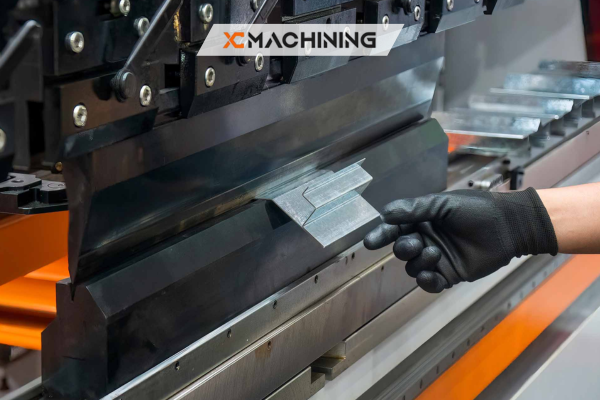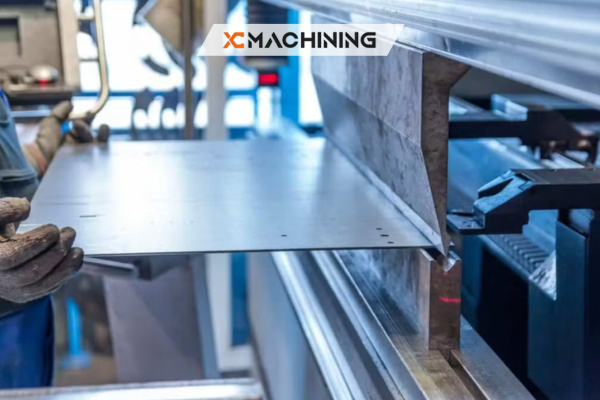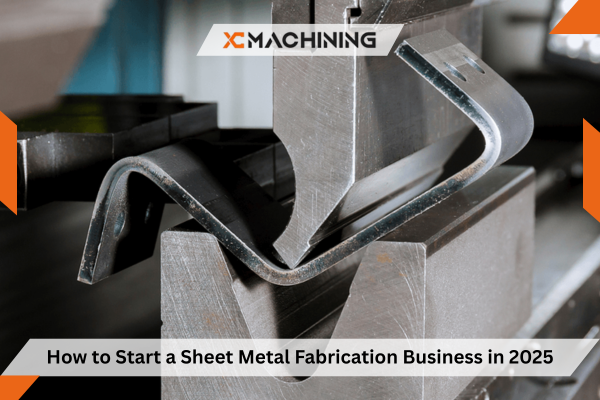Starting a sheet metal fabrication business in 2025 presents an exciting opportunity for entrepreneurs looking to enter the manufacturing sector. The demand for custom sheet metal fabrication continues to grow across industries like construction, automotive, aerospace, and HVAC. Whether you’re planning to open a small local shop or aim to become one of the leading precision sheet metal fabrication companies, this comprehensive guide will walk you through the essential steps to launch your venture successfully.
Table of Contents
Understanding the Sheet Metal Fabrication Industry
Before diving into the startup process, it’s crucial to understand what sheet metal fabrication entails. This manufacturing process involves cutting, bending, and assembling metal sheets into specific shapes and products. From simple brackets to complex architectural components, sheet metal fabrication serves countless industries that rely on custom metalwork.
The market for precision sheet metal fabrication has evolved significantly, with customers increasingly searching for “sheet metal fabrication near me” or “custom sheet metal fabrication near me” to find local suppliers who can deliver quality work quickly. This local search trend creates opportunities for new businesses to capture regional market share.
Step 1: Research and Planning
Every successful business begins with thorough research. Start by analyzing your local market to identify potential competitors and gaps in service. Visit existing sheet metal fabrication companies in your area to understand their offerings, pricing structures, and customer base.
Develop a detailed business plan that outlines your vision, target market, service offerings, and financial projections. Consider which niche you want to serve—will you focus on architectural metalwork, industrial components, or custom projects for hobbyists and small businesses? Your specialization will influence everything from equipment purchases to marketing strategies.
Step 2: Secure Funding and Calculate Startup Costs
Sheet metal fabrication requires significant capital investment. Your startup costs will vary depending on your scale and specialization, but here’s a general breakdown:
Expense CategoryEstimated Cost RangeEquipment (press brake, shear, laser cutter)$50,000 - $300,000Facility lease and setup$2,000 - $10,000/monthRaw materials inventory$5,000 - $20,000Insurance and licensing$3,000 - $8,000 annuallyInitial marketing and website$2,000 - $10,000Working capital$10,000 - $50,000
Explore funding options including small business loans, equipment financing, investor partnerships, or SBA loans. Many precision sheet metal fabrication manufacturers start small with used equipment and gradually expand as they build their client base.
Step 3: Choose the Right Location
Location is critical for a sheet metal fabrication business. You’ll need adequate space for equipment, material storage, and workflow. Look for industrial zones with high ceilings, good electrical infrastructure, and loading dock access.
Consider proximity to your target customers. Being a local option when potential clients search “custom sheet metal fabrication near me” can be a significant competitive advantage, especially for projects requiring frequent consultations or quick turnaround times.

Step 4: Invest in Essential Equipment
Your equipment choices will define your capabilities as a precision sheet metal fabrication company. Essential machinery includes:
- Shearing machines for cutting metal sheets to size
- Press brakes for bending and forming metal
- Welding equipment for joining components
- Finishing tools for grinding, deburring, and polishing
- Computer-aided design (CAD) software for project planning
In 2025, many successful sheet metal fabrication companies incorporate advanced technology like CNC machines and laser cutters to improve precision and efficiency. While these represent larger investments, they enable you to compete with established precision sheet metal fabrication manufacturers by offering superior accuracy and faster production times.
Step 5: Obtain Licenses and Permits
Operating legally requires several permits and licenses. Requirements vary by location, but typically include:
- Business license and registration
- Zoning permits for industrial operations
- Environmental permits for waste disposal
- OSHA compliance certification
- Sales tax permit
- Employer Identification Number (EIN)
Consult with local authorities and consider hiring a business attorney to ensure complete compliance with all regulations governing sheet metal fabrication operations.
Step 6: Build Your Team
Your success depends on skilled workers who can deliver quality custom sheet metal fabrication. Start with essential positions like experienced fabricators, welders, and a project manager. As you grow, add specialists in areas like CAD design, quality control, and sales.
Invest in training to ensure your team stays current with industry standards and safety protocols. Many precision sheet metal fabrication companies differentiate themselves through superior craftsmanship, which stems from having well-trained, experienced staff.
Step 7: Establish Supplier Relationships
Reliable material suppliers are the backbone of any sheet metal fabrication business. Build relationships with multiple suppliers to ensure consistent access to various metals including steel, aluminum, stainless steel, and copper.
Negotiate favorable terms for bulk purchases and establish credit accounts to improve cash flow management. Having dependable suppliers helps you meet tight deadlines and maintain consistent quality in your custom sheet metal fabrication projects.
Step 8: Develop Your Marketing Strategy
In 2025’s digital landscape, your online presence is crucial. Create a professional website showcasing your capabilities, past projects, and customer testimonials. Optimize for local search terms like “sheet metal fabrication near me” to capture nearby customers actively seeking services.
Your marketing plan should include both digital and traditional approaches. Effective strategies for precision sheet metal fabrication companies include networking at industry trade shows, joining local business associations, and building relationships with architects, contractors, and engineers who regularly need custom metalwork.
Step 9: Implement Quality Control Systems
Establishing rigorous quality control processes sets successful precision sheet metal fabrication manufacturers apart from competitors. Develop standardized procedures for measuring, inspecting, and testing finished products to ensure they meet specifications.
Document your quality control processes and consider pursuing ISO certification, which many larger clients require from their sheet metal fabrication companies. This certification demonstrates your commitment to consistent quality and can open doors to more lucrative contracts.
Step 10: Focus on Customer Service
Outstanding customer service creates loyal clients who provide repeat business and referrals. Respond quickly to inquiries, provide accurate quotes, communicate clearly throughout projects, and deliver on time.
Many customers searching for “custom sheet metal fabrication near me” value the personal touch and accessibility of local businesses. Make yourself available for site visits, consultations, and problem-solving discussions that larger, distant competitors cannot easily provide.

Conclusion
Starting a sheet metal fabrication business in 2025 requires substantial planning, investment, and dedication, but the rewards can be significant. By focusing on quality craftsmanship, building strong customer relationships, and leveraging both modern technology and traditional metalworking skills, you can establish yourself among successful precision sheet metal fabrication companies in your region. Remember that growth takes time—start with manageable projects, deliver exceptional results, and gradually expand your capabilities as your reputation and resources grow.
Frequently Asked Questions
How much money do I need to start?
Expect $70,000–$250,000 based on equipment, staffing, and location size.
What equipment is essential?
Start with shears, press brakes, a laser cutter, welding machines, and CNC equipment.
Is metal fabrication profitable?
Yes—especially with niche services, recurring contracts, or high-margin prototyping work.
How to find first customers?
Build a website, run local ads, network with contractors, and leverage LinkedIn or trade directories.





